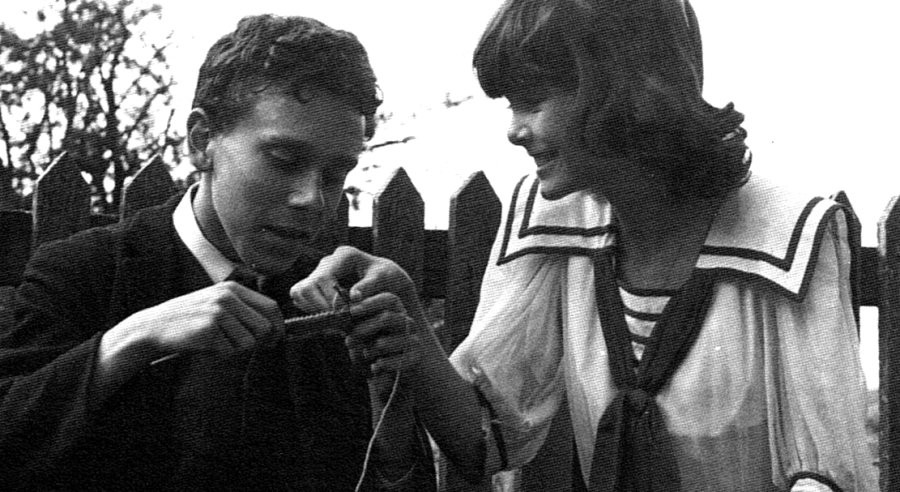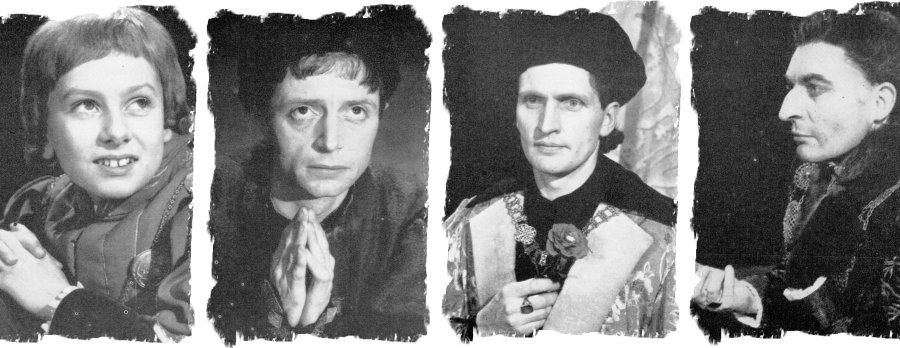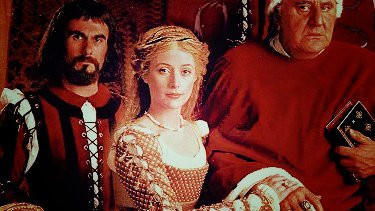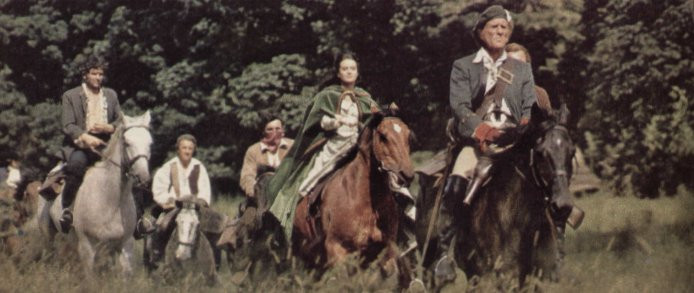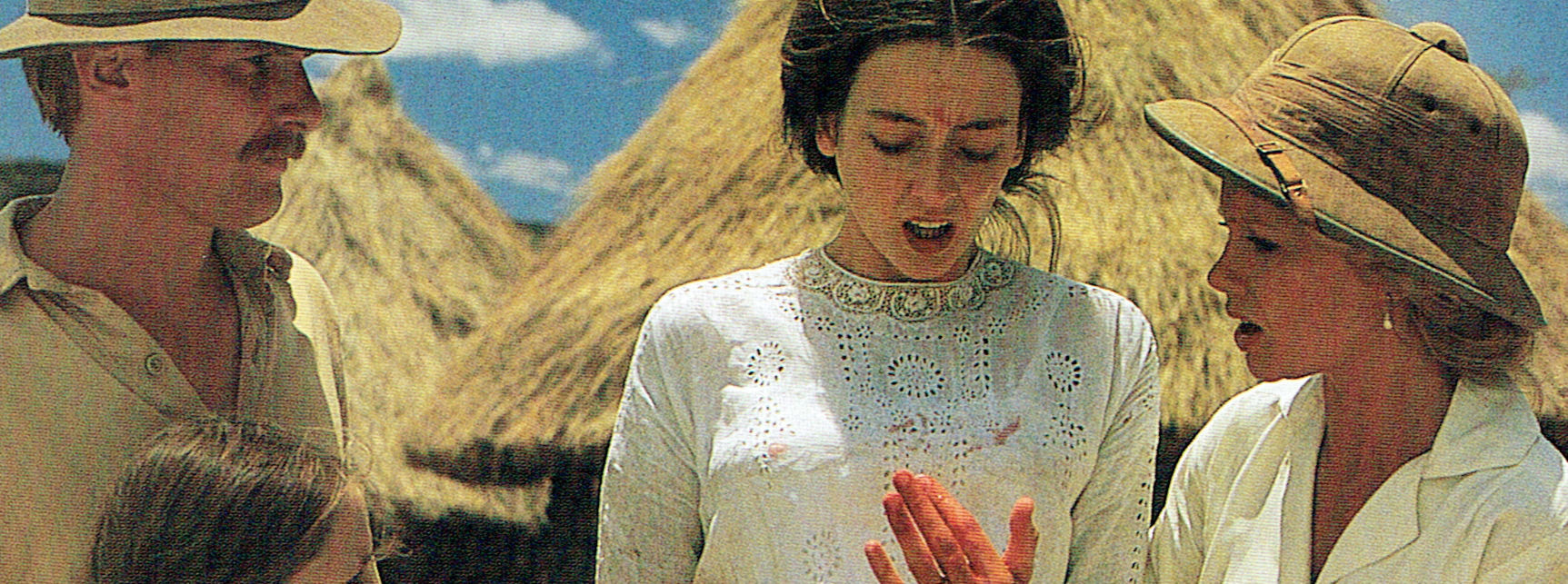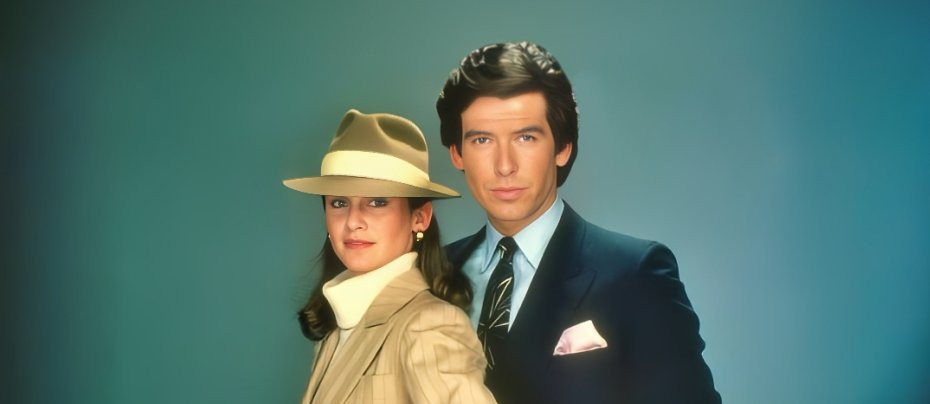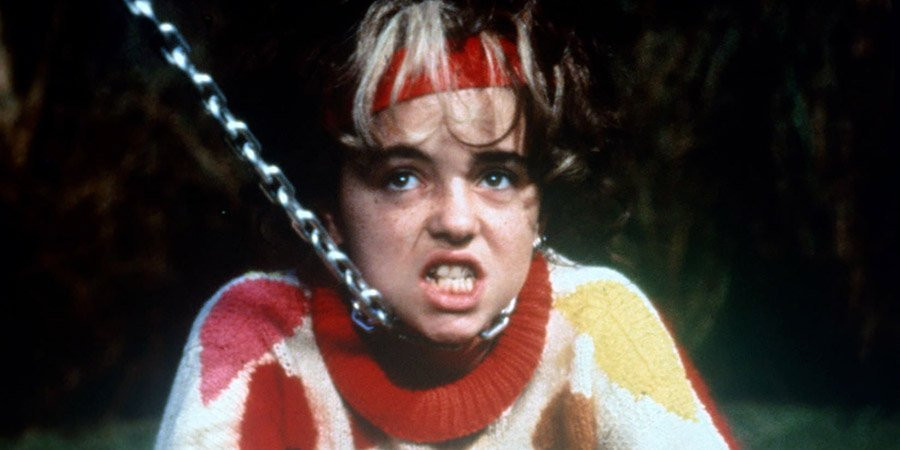
Nancy Astor
1982 - United KingdomDescribed by one of her contemporaries as a woman of unlimited effrontery, ‘less shy than any woman - or any man - one has ever known,’ the story of Viscountess Nancy Witcher Astor was an epic tale of rags to riches, romance and heartache, and history in the making that was just waiting to be told. In 1982 the BBC spared no expense on this lavish nine-part series about the life and times of the child born Nancy Langhorne in Danville, Virginia, on 19th May 1879 who would become the first woman to take her seat in the House of Commons, introduce a Private Member's Bill that raised to 18 the age qualification for buying alcohol and vote against the Government in May 1940 - helping Winston Churchill to become Prime Minister.
“She was absolutely unabashed by any situation.” Wrote one politician. “Great effrontery but also, of course, enormous charm. People were usually overcome by it. She was much better when she was interrupted. She must have prayed for hecklers and interrupters. She certainly got a lot.”
To help understand her better, and help her prepare for the role of the charismatic Nancy, the BBC had previously flown New Zealand born actress Lisa Harrow, to Charlottesville, Virginia, where she visited Mirador, the house her father, Chillie (his full name, Chiswell, was never used) Langhorne, had purchased with his newly acquired railroad wealth in 1892. Nancy never forgot how, at the age of 13, her life changed dramatically from abject poverty to untold wealth, and carried that memory into her adult life where it prompted her to campaign for women's suffrage, equal rights in the Civil Service, and become a strong supporter of the nursery schools of Margaret McMillan, which concentrated on trying to improve the physical and intellectual welfare of the slum child.
“I knew that Virginia was at Nancy Astor’s centre,” the 38 year-old actress told freelance reporter Henry Fenwick. “And as soon as you come here, as soon as you sit in this land, you understand why.” She had been taken to Virginia with producer Phillip Hinchcliffe, writer Derek Marlowe and director Richard Stroud on a reconnaissance. Although Mirador still exists, the house now stands far too close to a major road, making filming impossible there. Instead, the cast and crew were located at a nearby estate called Redlands, aptly titled as they quickly discovered when the rich red soil stained their clothing. Much of the action was filmed here, while groups of people gathered daily to watch the BBC unit at work, many of the visitors having known the Langhorne family personally.
“Undisputed leader of the visitors”, wrote Henry Fenwick “is Nancy’s niece, Phyllis Langhorne Draper, a small, vigorous, smart woman in her 60s with a sharp eye and a quick tongue. She is an unabashed flirt and quite alarmingly charming; the force of her personality leaves no choice but to do her bidding while she jokes and cajoles and pretends that you are a free agent.
“This must be something of the quality for which Nancy was notorious and Lisa Harrow watches her like a student.”
Harrow agreed: “Coming here and seeing Virginian women – the older ones particularly, people like Phyllis, but others too – who are women with enormous style, watching the way they flirt, the way they work that Southern charm, I understand a lot about that side of Nancy. On the one hand she was obviously alive, flirtatious, almost a tease, but on the other hand she was this incredibly moral, puritanical, upright, firm, rigid person. I didn’t understand that until I came here and actually saw it in practise.” Yet whilst being continually entertaining, attractive and easy to talk to Harrow also saw something quite formidable about them. “They are quite extraordinary women.” She observed. “The older they get the more flirtatious they get because the safer they are. It really gets polished to a fine art. It’s a wonderful game and as long as everyone you’re playing it with understands the rules – as they do in the South – you can play it till the cows come home. She was amazing, old Nancy, the way she used to reduce men till they melted in pools beside her. It was great lesson to look and learn and understand.”
Following a failed first marriage Nancy moved to England in 1904 and in 1906 she met and married the politician William Waldorf Astor who was also born in the USA (in 1879) and had moved to England, where his father was the owner of the Observer newspaper. Waldorf became the Conservative MP for Plymouth Sutton in 1910, but he had to relinquish his seat when his father died, because he inherited his title of Viscount Astor. As her husband was being moved "upstairs" to the House of Lords, Nancy decided to stand in Plymouth Sutton in his place. She won the election in November 1919, beating her main rival, Liberal Isaac Foot - the father of Michael Foot who went on to lead the Labour Party.
She went down in history as the first woman MP to take her seat in the House of Commons even though she was not the first woman elected. That distinction went to Constance Markievicz just a year before, but as a member of Sinn Fein she had disqualified herself by refusing to take the oath. Nancy remained an MP for Plymouth Sutton for 26 years. William Waldorf Astor was appointed Lord Mayor of Plymouth in 1939-44 - without even being a member of the city council, an honour that had only ever been bestowed once before - to Sir Francis Drake.
Apart from the scenes filmed in Virginia location shoots also took place Cliveden House, the Astor estate in England where she entertained many of her famous guests. As would be expected during the nine episodes we are also introduced to the famous, royalty, politicians and personalities who were a part of Nancy's life including Edward VII, Lloyd George, Margot Asquith, Winston Churchill, Charlie Chaplin and George Bernard Shaw to name a few. The series debuted on BBC2 at 9.25pm on Wednesday 10th February 1982 with the episode 'The Langhornes of Virginia' and opens in 1896 with the young Nancy Langhorne, one of five beautiful sisters, on the verge of womanhood, when -against her wishes, she is sent to a New York academy to be groomed. But Nancy's rebellious nature clashes with the Social Register set, and she yearns to return home to a post-Civil War Virginia.
As the story progresses we see Nancy meet Robert Gould (Pierce Brosnan), a man she regards as an arrogant and conceited playboy, to whom, but seven months later, at the age of 17, she begs her father to give his blessing for marriage. But disenchanted by the Boston set, repelled by physical intimacy, and a realisation that she has married an alcoholic and womaniser, Nancy's turbulent early life leads her to divorce by the age of 24, by which time she has seen her mother die in her arms and given birth to a son, Bobbie Shaw (played later in the series by Nigel Havers), whose life was to be even more tragic than his father's. Moving to England where she became the focus for the country's most eligible bachelors, Nancy attracted the attentions of Lord Revelstoke (Julian Glover), the idealist Philip Kerr, later Lord Lothian (David Warner) and finally the man she took as her second husband, Waldorf Astor (James Fox).
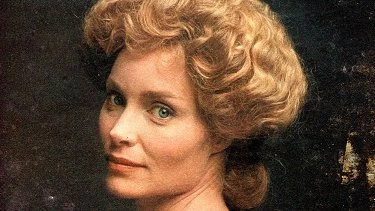
The series was nominated for two BAFTA Awards in 1983 and a year later, when it was shown in the US under the Masterpiece Theatre banner it was subsequently nominated for both an Emmy and a Golden Globe. All the more mystifying then that most US published books on the Masterpiece Theatre series entirely ignore it. But whether the series did true justice to the Nancy Astor story is best debated by critics of the time or those that watched each of its 9x55-minute episodes. It has not been made available on video or DVD.
The Astors were hugely generous with their wealth giving buildings, land and money to the city of Plymouth, although some social critics have been less flattering of her political views claiming she was an elitist who felt she and her social cast of the cultured elite could better lead the rest of the common man or woman than they could lead themselves. Indeed, when running for election she made no attempt to hide her wealth travelling from factory to colliery in a chauffeur driven Rolls Royce urging the ordinary working class to vote for her. They did.
As she grew older she enhanced her reputation as a fierce debater never holding back from delivering her opinion. It won her many friends but equally many enemies within her own party and almost certainly, as a result, she was never offered a cabinet post and passed over for many important select committees. It was perhaps an anti-climax to a promising career, but she never forgot her humble beginnings and on her death a large part of the Astor fortune was bequeathed to the appropriate charities. There is a famous exchange between Winston Churchill and Nancy Astor, which took place when they were both staying at Blenheim Castle visiting the Marlborough's. The two politicians had been at each other's throat all weekend when Nancy said, "Winston, if I were your wife I'd put poison in your coffee." Whereupon Winston replied, "Nancy, if I were your husband I'd drink it."
George Bernard Shaw called her 'a recklessly unladylike lady' and captured in a phrase the turbulent and contradictory nature of this remarkable woman: the vivacious and beautiful young Virginian who took the English Establishment by storm and became the first woman to sit in Parliament, in 1919.
Famous for her magnetic charm, her acid wit and her fighting spirit, Nancy became an outspoken campaigner and brilliant hostess to the eminent figures of her age. Generous and warm-hearted for the most part, she also possessed a brutal candour which wounded many closest to her and created a poignant and tragic undertow to her life.
Henry Fenwick - 1982
Philip Hinchcliffe
Producer of this series, Philip Hinchcliffe, is probably best known for overseeing Doctor Who in the mid-1970s. He was credited on the series shortly after the start of Tom Baker's era, although he didn't actually take full took charge until 'Planet of Evil' from Baker's second season.
Together with script editor Robert Holmes, he ushered in a change in tone for Doctor Who making it darker and with a gothic atmosphere influenced by the horror films produced by Hammer. And while the Hinchcliffe-Holmes era is fondly remembered as a 'golden period' of the show by fans, the BBC received more complaints about the horror content of the series than ever before, most notably from Mary Whitehouse, chairwoman of the National Viewers' and Listeners' Association.
Whitehouse claimed that the programme was unfit for children and could traumatise them.
While the BBC publicly defended the programme, after three seasons Hinchcliffe was moved onto the adult police thriller series Target in 1977.
After this Hinchcliffe worked on numerous series, including Taggart, The Last Musketeer and many others.
His daughter, Celina Hinchcliffe, is a television presenter, who works on sporting events for the BBC.
Seen this show? How do you rate it?
Seen this show? How do you rate it?
Published on January 9th, 2019. Written by Laurence Marcus (2005) based on an original article by Henry Fenwick and reproduced with kind permission of the author for Television Heaven.


